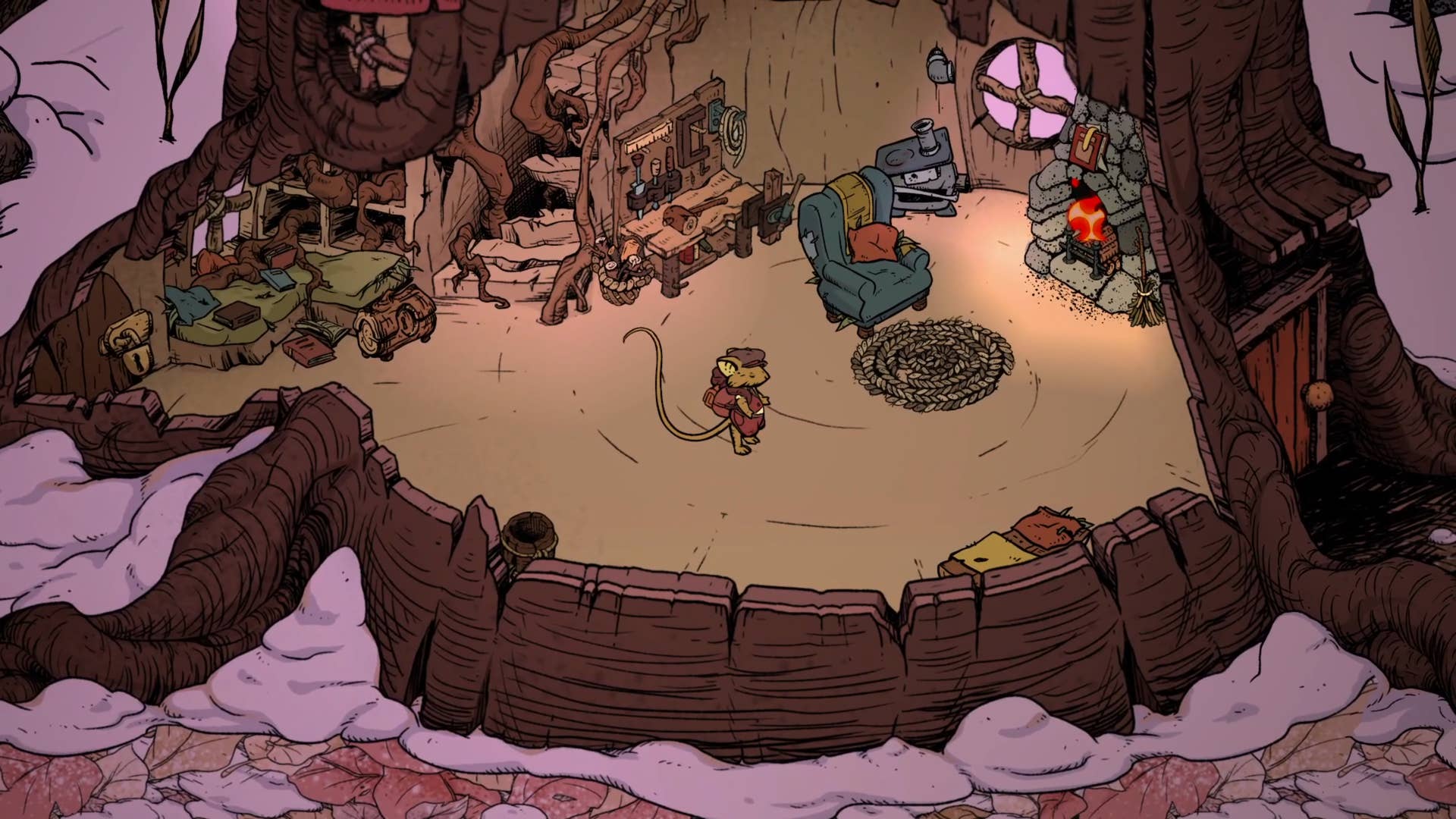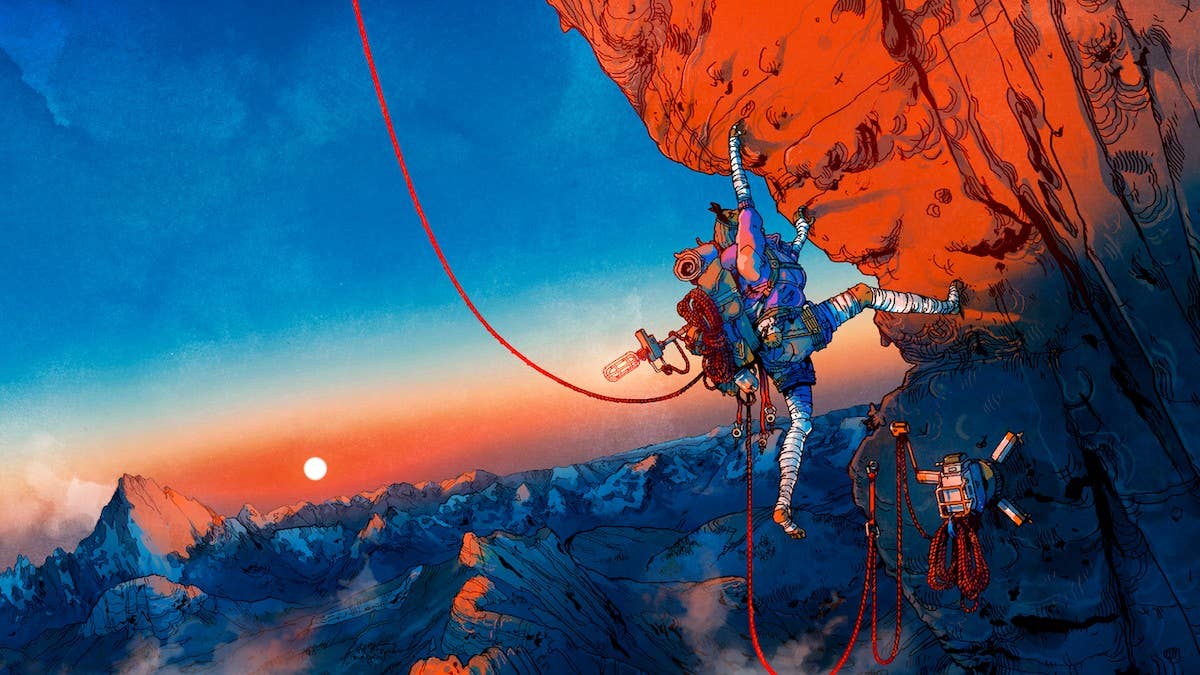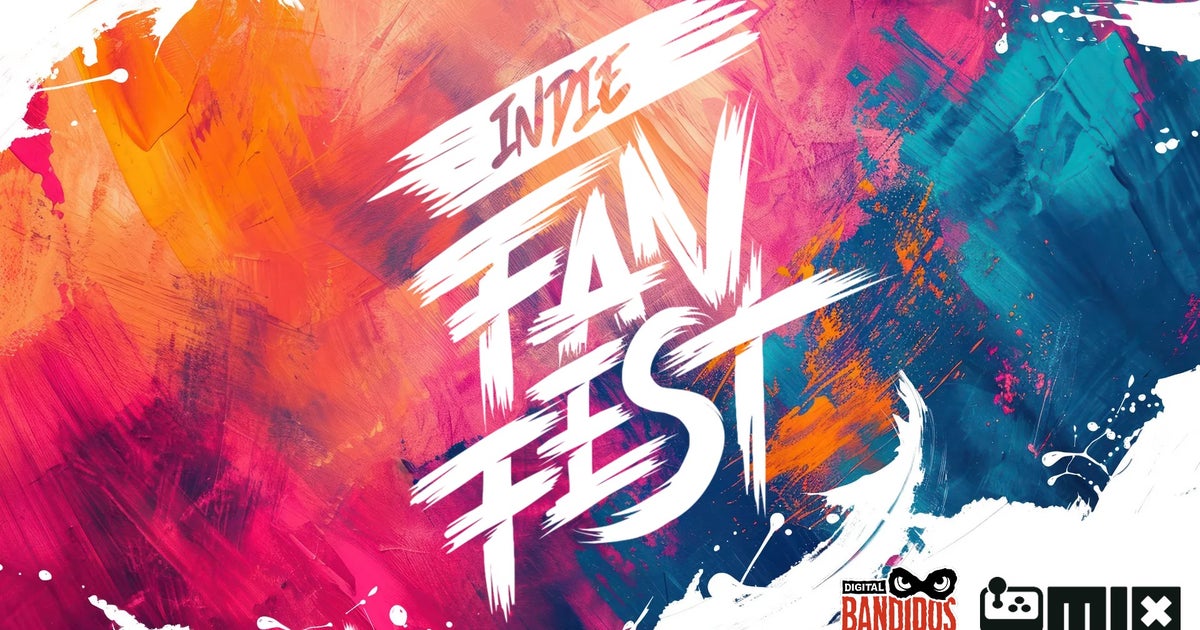Back in July, indie publisher Digital Bandidos and event organiser The MIX announced the launch of a new showcase championing indie developers.
Indie Fan Fest, which premieres tomorrow (September 24), is set to highlight upcoming indie titles preparing to debut playable demos during October’s Steam Next Fest.
Ahead of the debut showcase, GamesIndustry.biz spoke with Digital Bandidos CEO Steve Escalante and The MIX co-founder Justin Woodward on their partnership, how Indie Fan Fest came to be, and what they hope to achieve with future showcases.
The interview below has been edited for brevity and clarity.
Steve, how’s it been going since Versus Evil shut down in 2023?
Steve Escalante: Versus Evil was really just a great run. When Lance [James] and I decided to start Digital Bandidos, it was because there was a lot left undone and that’s resonant in the relationships that we have.
I feel like we’re in the right place – we’ve got about a half a dozen games that we’ve signed, a couple of which haven’t been announced, several have. I’m jealous of the back catalogue revenue stream that I used to have at Versus Evil, where it had that revenue flowing in and paying for things.
But we’re rebuilding, we’re having a lot of fun. We’re seeing a lot of great developers, great games, and the team we have surrounding us at Digital Bandidos is awesome. So we’re pretty psyched.
Where did the idea for Indie Fan Fest originate? What was the pitch?
Escalante: Digital Bandidos has been working for some time now to try to help indies with discovery. There’s only a finite number of groups and events that you can be a part of to try to get your title seen.
The reality is that indies are limited, and we’re limited by the fact that most indies have to use guerrilla-type tactics, and they don’t have a lot of money. They can’t inject capital, they can’t do all of these things AAA or AA companies can do – coming from AAA, I know that to be true.
The idea for Indie Fan Fest came from [asking how we can give teams] a boost, perhaps with enough advance notice in front of a Next Fest where Steam can drive organic lift during that time period. Since we didn’t know how to do a show, we reached out to Justin and Joel [Dreskin] and the guys over at The MIX. They’ve always been supporting indies in a very grassroots and authentic way.
The core competency of the event was to give indies momentum, and then as they roll into Next Fest, Valve and Steam sees what they’re doing and gives them a boost, and the rest is hopefully history.
How is Indie Fan Fest financed? Do developers need to pay a submission fee to be featured?
Escalante: Yes, there is a small submission fee, which is typical to what The MIX does. Once you get selected, there’s a $600 fee. We also have sponsors to help with other things as well.
We wanted to provide a low barrier to entry. Because as soon as you say to an indie publisher, ‘It only costs $2,000,’ [They’re] like, ‘Excuse me?’ We guard every penny, everything that we can.
Justin Woodward: With that frame of mind, we’re working with Steam [to boost the event]. Anytime we have a Steam event page, we drive thousands of wishlists to the games. And we keep to the barrier of entry so it’s affordable.

So these developers can take advantage of the situation without feeling like their pockets are getting taken advantage of.
Even if one of the games is amazing, but the developer can’t even afford that, we’ll still work with them and say, ‘Hey, we want your game, we want your content. We’ll take care of that. Don’t worry about it.’
It’s all about building a grassroots community around this Indie Next Fest in order to have this as a sustainable platform for the future, not just this one event.
Every time there’s a Steam Next Fest, we [plan to] have an Indie Fan Fest in front of it, and hopefully it gets larger and larger. Maybe in the future we could do a physical event, which would be amazing.
Steam Next Fest is a huge event, and developers can struggle to get noticed. Was this one of the catalysts for creating your own event to spotlight indie developers?
Woodward: I think it’s a complementary way to highlight games so they get visibility. We’re finding… I don’t want to say diamonds in the rough, but we are finding games that may not surface that can hopefully get a huge boost from this kind of support.
Escalante: The reality is, if you think about how many games are launched from a monthly perspective, you’ve got a couple thousand games coming out.
When we first crafted this idea, we thought that while we can help a lot of people, the reality is a show format is also limited. So how do we try to create the right type of momentum, acknowledgement, and promotion around a title to help developers?
We’d love to be able to help everybody, but in the show format and a lot of other formats, which includes Steam Next Fest, it’s really, really hard because there’s just so many titles.

As the ones controlling what games are featured, how do you choose which titles will be shown on Indie Fan Fest?
Woodward: Both teams [Digital Bandidos and The MIX] went through this plethora of games. Also, we have to think in multiples, we have to think of our audience [and what they want to see].
We also have to consider the pacing of the show and the types of games we’re going to showcase within that.
For example, we had a bunch of Metroidvanias. We can’t pick 20 of those games, so we had to figure out which ones are unique, which ones have been overexposed, and which ones haven’t had the exposure that we think that they may need to move forward.
We also have to consider our broadcasting partners, who are looking at the content to see what their audience wants. So in that context, we want these tentpole games that will help lift up the smaller games that don’t have the exposure.
So there are some strategic things we have to think about while we’re picking the games. The whole thing is very well thought out, and we’re communicating with the Digital Bandidos team, who have a different eye and ethos behind what they’re looking at. So it’s very helpful to have those contrasting thoughts.
Have you been inundated with developers sending trailers to be featured in the showcase, or have you had to chase people?
Woodward: After we started really pushing it on LinkedIn and all these different places, we’re getting trailers after the fact, and we’re trying to figure out how to slot stuff in.
In total, we’ve had about 700 trailers come in for this mixed with the Fall showcase, but an overwhelming amount of them were for Indie Fan Fest. It’s a really clear positive that this is something that folks want. As a matter of fact, it was kind of difficult to say no to some of these. They’re amazing, but [we] can’t have a three-hour show, or else people would get lost.
But there’ll definitely be more opportunities. It’s good because I think a lot of developers and even publishers break their backs to hit the first Steam Next Fest and try to get a position. Now that we have this show, folks can strategize and maybe they can be more thoughtful on where they slot their Steam Next Fest positioning, because you only get one. So I think this is going to be a net positive and helpful for folks.
Escalante: We’ve been really flattered with how many people wanted to be part of this first show. The next one’s going to be bigger, better, with a lot more services and information, and hopefully we can help people strategize. It’s a very important event for indie developers – it’s a wishlist driver, it’s about developing a relationship with Valve, because they’re seeing the pickup that you get, and the hope is that we’re just helping.

Playing devil’s advocate, there’s a lot of these showcases… do we need another one?
Woodward and Escalante: Yes!
Woodward: The thing is, a lot of folks don’t have the expertise that we have in positioning those showcases. Not everyone has the partnerships that we have, either. There’s a lot of shows coming out left and right, and a lot of them don’t last. Some of them do, and there’s a few that I really hold in high regard. This is something I’m personally passionate about – it’s very, very necessary and I think we’re going to kill it.
It feels like discoverability is the problem that everyone’s facing, and it gets worse and worse all the time. How can that problem possibly be solved – or can it be solved?
Escalante: Digital Bandidos is actively working on a platform right now to solve discoverability. We feel that there are companies that are doing pieces of it, but they’re not doing everything that can be done.
There are only so many tools in indie development to get that type of notice and press for a console or PC launch. Now that the platforms have pretty much lowered the barrier to entry for products, that’s why we’ve seen an influx of content. So the challenge is going to get worse. We haven’t even seen the impact of what AI development is going to do, either.
I think it’s going to be exacerbated in the next couple of years, and because of that, we are hyperfocused on how do we help teams pre-launch, find users, create relationships with those users, have direct communications, and hopefully be able to mobilize them towards wishlists, purchases, and pre-orders.
So you’re talking about building a platform for indies?
Escalante: We feel that we have a formula to do it. I’m hoping that we can get there. It’s going to be a challenge, it’s going to be a long process, but I think it’s 100% needed to help them self-publish. There are companies that are doing pieces of it that are absolutely mobilizing and helpful, and people should be seeking those things out.
Disclosure statement: Former GamesIndustry.biz editor-in-chief, James Batchelor, is an employee at Digital Bandidos.
